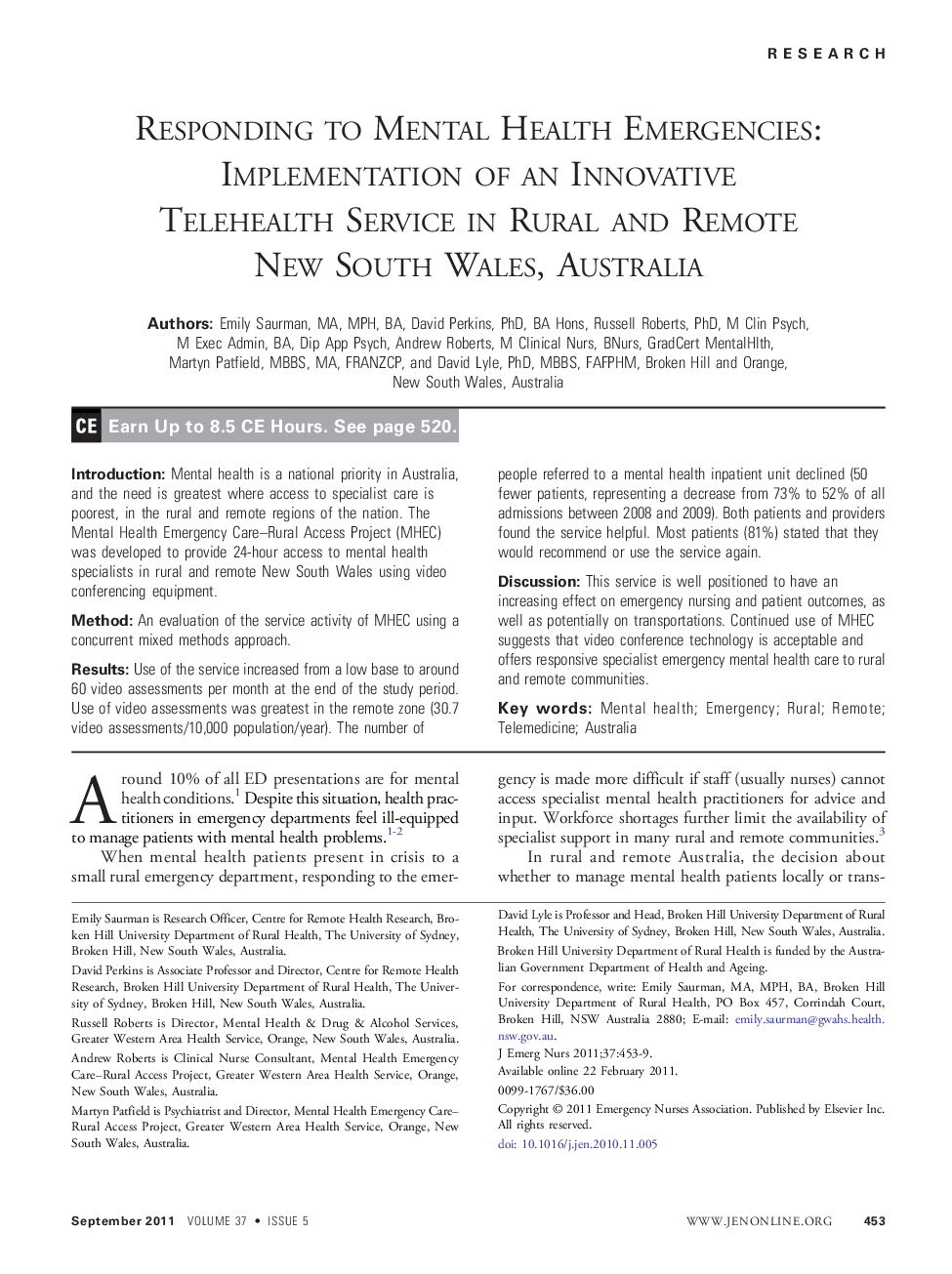| Article ID | Journal | Published Year | Pages | File Type |
|---|---|---|---|---|
| 2610291 | Journal of Emergency Nursing | 2011 | 7 Pages |
IntroductionMental health is a national priority in Australia, and the need is greatest where access to specialist care is poorest, in the rural and remote regions of the nation. The Mental Health Emergency Care–Rural Access Project (MHEC) was developed to provide 24-hour access to mental health specialists in rural and remote New South Wales using video conferencing equipment.MethodAn evaluation of the service activity of MHEC using a concurrent mixed methods approach.ResultsUse of the service increased from a low base to around 60 video assessments per month at the end of the study period. Use of video assessments was greatest in the remote zone (30.7 video assessments/10,000 population/year). The number of people referred to a mental health inpatient unit declined (50 fewer patients, representing a decrease from 73% to 52% of all admissions between 2008 and 2009). Both patients and providers found the service helpful. Most patients (81%) stated that they would recommend or use the service again.DiscussionThis service is well positioned to have an increasing effect on emergency nursing and patient outcomes, as well as potentially on transportations. Continued use of MHEC suggests that video conference technology is acceptable and offers responsive specialist emergency mental health care to rural and remote communities.
